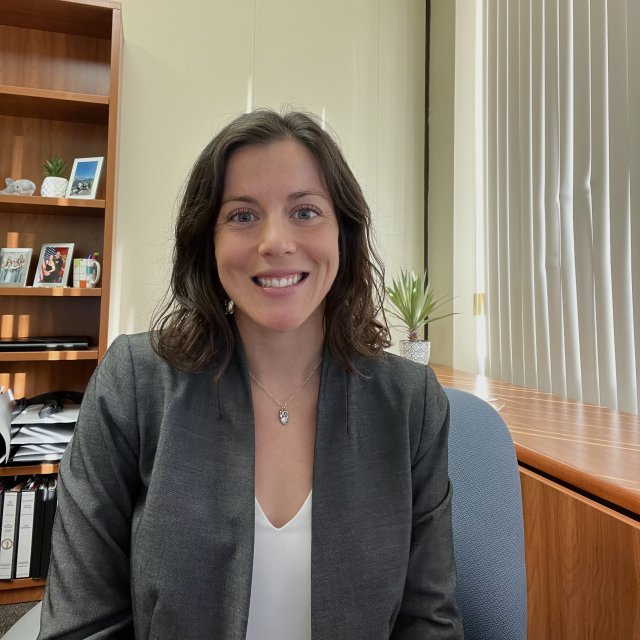
Paige Cavendish (17) has utilized her fascination with logic and discovery to forge an exciting law career.
After attending law school at UC Irvine, Cavendish started in the Orange County district attorney’s office. In 2023, she started as a prosecuting attorney in Huntington Beach.
Cavendish started as an Art Education major at PLNU with a Mathematics minor, planning to be an art teacher. However, after taking the Intro to Philosophy general education course with Heather Ross, professor of Philosophy at PLNU, Cavendish became captivated with the study of Philosophy.
“I really fell in love with the subject,” Cavendish said. “I was super interested in the material, I loved all the readings, and I started going to Heather’s office hours a lot.”
As they talked more and more during Ross’s office hours, Ross recognized how passionate Cavendish was about philosophy, and encouraged her to major in it. Cavendish said she was interested, but needed to come up with a career plan involving a Philosophy degree.
“My parents were supportive if I had a plan on what to do with my philosophy major,” Cavendish said. “Which is a bit ironic considering my mom was also a philosophy major — we both had a passion for the subject.”
After two years of undergrad studying Art Education, Cavendish officially switched her major to Philosophy.
“Fortunately, since the number of units for philosophy is smaller compared to other majors, I was able to complete my major in those two years even though I switched halfway through,” she said. “So I still had all those art classes under my belt, which I’m grateful for, and I was still able to complete my math minor.”
As she explored potential career paths, she learned that many people with Philosophy degrees go on to become lawyers.
“Once that thought was brought to my attention, I knew that I could research, I could write, I could argue, and that could possibly be a good career fit for me,” she said.
Upon earning her B.A. in Philosophy, Cavendish went straight to law school, and soon realized that many of the people there indeed had a background in philosophy.
“I think there’s always some shifting gears going into the legal profession,” she said. “But in my experience, many of the people I encountered in law school, a large majority, [were] philosophy or political science majors.”
One particular skill she developed in her studies became very important in her law work: analyzing an author’s argument objectively and afterward comparing it to how the reader feels about it.
“I think philosophy did give me a lot of skills on how to think logically, reason, pick apart arguments, and an ability to be objective and just look at the facts in a way that other people weren’t as well equipped to do,” she said.
“I think that’s very helpful in law because first and foremost, you’re analyzing the facts objectively, and trying to make a case from there, and I think I was very well equipped to view things objectively.”
Cavendish explained that certain philosophical interests that come naturally to her made pursuing law a great fit — especially reading, writing, and asking questions about logic, ethics, and morality.
For example, the utilitarian perspective — which asserts the best moral actions seek out happiness and wellbeing for the greatest number of people — is instrumental in determining fairness as an attorney, especially a prosecuting attorney. Cavendish explained she’s grateful that Ross’ Philosophy courses often contained a strong emphasis on justice.
“I think the most important skill for me personally as a prosecutor is having a strong background [about] justice, ethics, and morality,” Cavendish said. “The things that keep me up at night, the questions I ask over and over again–that’s what it has to do with.”
Overall, Cavendish is grateful to have switched majors to Philosophy, especially in light of her advancing success as a lawyer for which Philosophy helped lay the foundation.
“I have Heather Ross to thank, she’s the reason I became a lawyer, and she really changed the trajectory of my life,” Cavendish said. “I’ll always be grateful for her; I think what she does in students’ lives is amazing.”